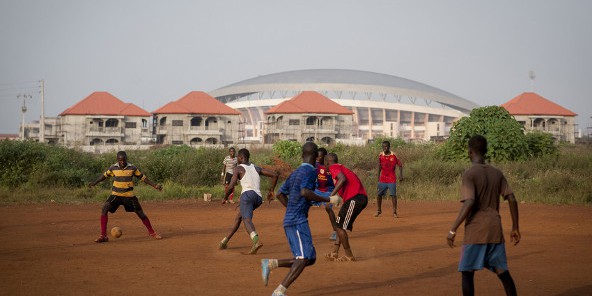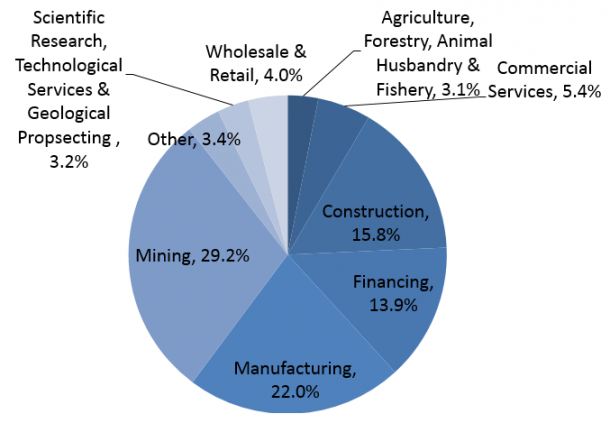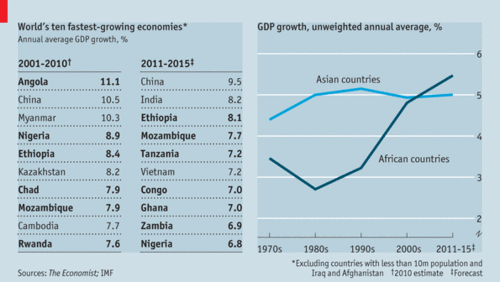"Autopsie de l'afro-optimisme 2.0"
Published19 Aug 2015

Imagem: © Sylvain Cherkaoui pour J.A.
A ideia de que África está em desenvolvimento e de que será a nova Ásia Mundial, o afro-optimismo, é o tema de um artigo publicado no site Jeune Afrique por Yann Gwet, ensaista camaronês, que introduz os conceitos de" afro-optimisme 1.0" e "afro-optimisme 2.0", analisando o fenómeno em termos económicos e sociológicos.
Le recours aux chiffres est pratique car il donne une apparence d’objectivité à un débat essentiellement idéologique. Avant la crise financière de 2007, le consensus était que les pays africains avaient des difficultés, mais aussi un potentiel important. Ce potentiel entretenait un optimisme légitime mais prudent. C’était l’afro-optimisme 1.0.
L’afro-optimisme 1.0 est mort, vive l’optimisme 2.0 !
La crise de 2007 a mis à mal ce consensus. Les économies occidentales et asiatiques étaient en panne, les investisseurs internationaux en quête de « relais de croissance ». Tout d’un coup les pays du continent devenaient attractifs. La réécriture du script s’imposait. C’était l’avènement de l’afro-optimisme 2.0.
L’afro-optimisme 1.0 était un état d’esprit. L’afro-optimisme 2.0 est une doctrine. Celle-ci énonce que la réalité peut être créée. L’afro-optimiste 1.0 voyait le verre à moitié plein. L’afro-optimiste 2.0 décide que le verre est plein.
Avec le temps, l’afro-optimisme 2.0 est devenu un produit commercial. Ses fournisseurs ? Des institutions internationales, des médias influents, des groupes d’intérêts divers. Ses clients ? Les couches éduquées d’une diaspora désireuse de voir le continent émerger, des multinationales assoiffées de croissance et des dirigeants africains heureux de se prévaloir de progrès parfois fictifs.
O texto completo em Autopsie de l’afro-optimisme 2.0




